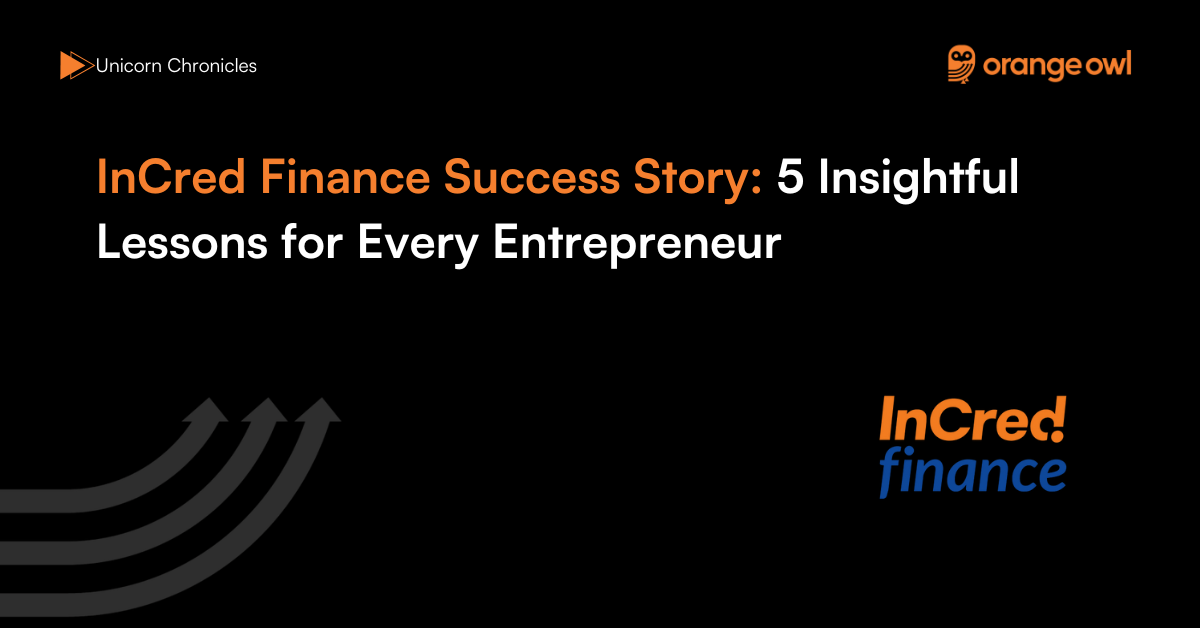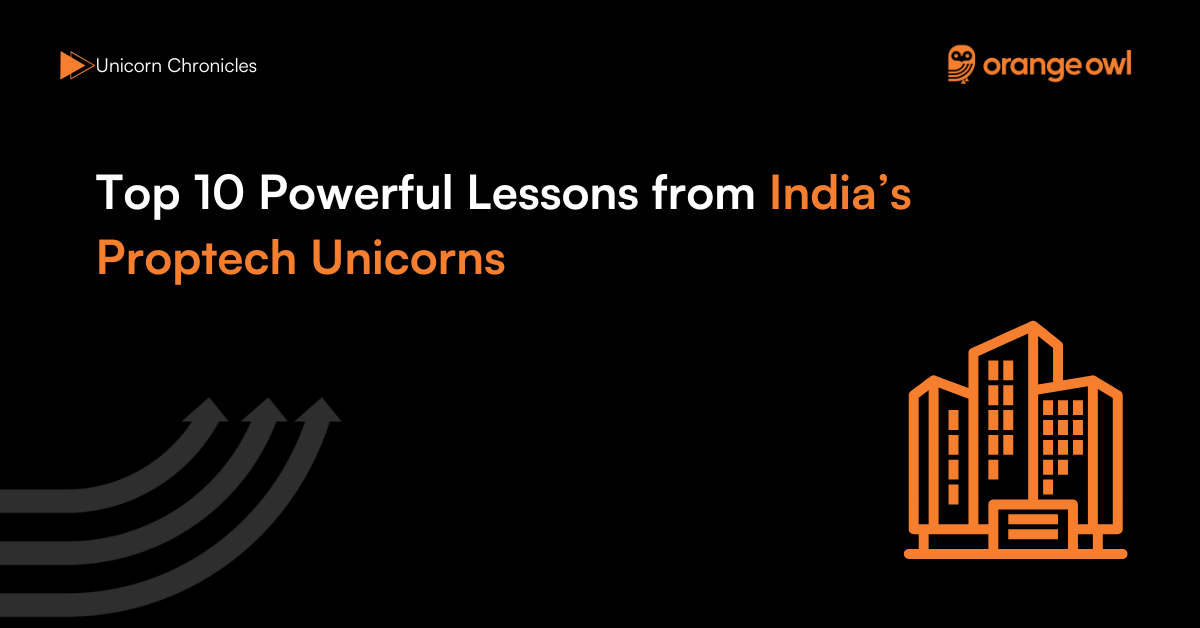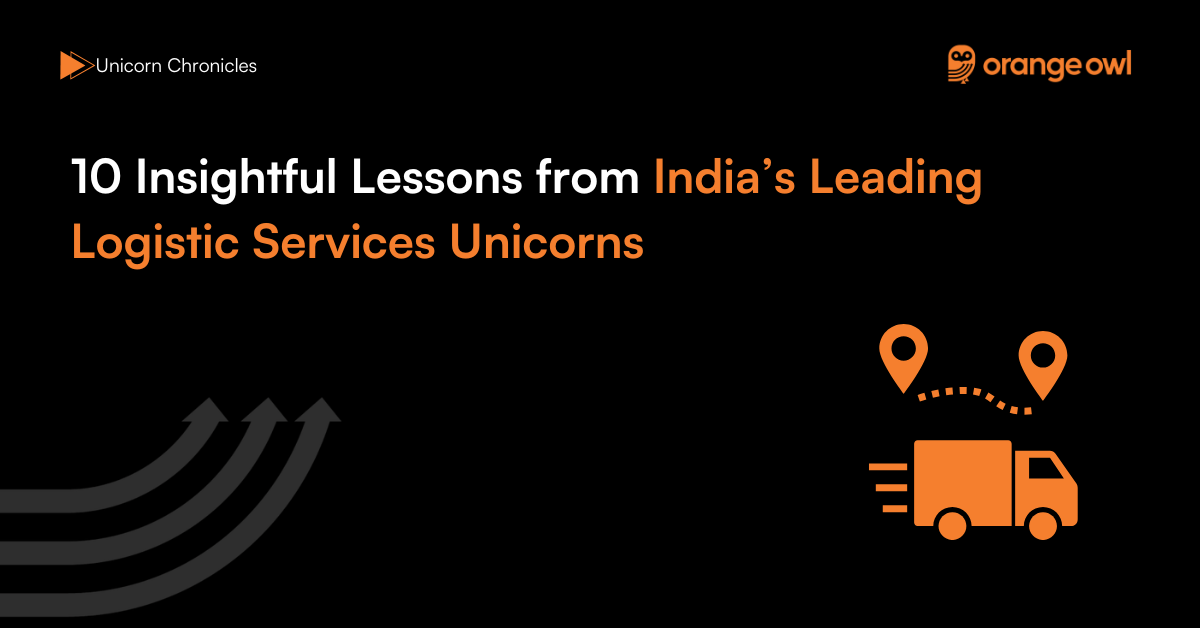InCred Finance Success Story: 5 Insightful Lessons for Every Entrepreneur
Vivek Goel
June 17, 2025

Table of Contents
Introduction
InCred Finance, a new-age Non-Banking Financial Company (NBFC), has rapidly emerged as a formidable player in India’s lending ecosystem. Founded in 2016 by Bhupinder Singh, a former Deutsche Bank executive, InCred is driven by a simple yet powerful idea: making credit accessible and hassle-free for India’s underbanked population.
In just a few years, InCred has expanded across consumer loans, MSME lending, and education finance—disbursing thousands of crores with a strong focus on risk management and technology.
In the fiscal year 2023–24 (FY24), InCred demonstrated impressive financial growth. The company’s revenue from operations grew by 48% to ₹1,267 crore, up from ₹856 crore in FY23.
Net profit after tax more than doubled, reaching ₹316.3 crore compared to ₹120.9 crore in the previous fiscal year. This robust performance was primarily driven by a 45% increase in interest income, which totaled ₹1,193 crore in FY24.
“India is not one homogenous market. If you want to scale responsibly, you have to customize your underwriting model to different consumer realities.”
— Bhupinder Singh, Founder & CEO, InCred Finance
Origin Story
After an illustrious global career in investment banking, including a tenure as the Head of Investment Banking and Co-CEO of Deutsche Bank’s Asia-Pacific region, Bhupinder Singh returned to India with a mission — to fix what he saw as one of the most fundamental bottlenecks in the country’s growth story: access to credit.
Despite India’s booming economy and growing middle class, vast swathes of the population remained either underserved or invisible to traditional financial institutions.
Singh observed that many Indians, especially those in the informal sector, had the capacity and intent to repay loans but were denied access due to legacy underwriting systems that didn’t account for India’s socio-economic diversity.
Fueled by the rising wave of digital adoption and fintech innovation, Singh envisioned a platform that would combine data science, empathy, and strong risk frameworks to unlock this dormant credit demand.
Thus, in 2016, he founded InCred Finance, a name derived from “Incredible Credit,” symbolizing a trustworthy, scalable financial institution built for India’s unique complexities.
“Our aim is to democratize credit using data science and empathy. This is not just a business problem — it’s a social one.” — Bhupinder Singh, Founder & CEO, InCred Finance
What started as a bold vision has since matured into a diversified lending platform serving individuals, small businesses, and students, all united by one thing — a need for credible, responsible credit access.
Business Landscape and Early Challenges
InCred entered a deeply fragmented and heavily regulated Indian financial market. Unlike many fintechs that focused only on digital solutions, InCred took a hybrid approach, combining deep technology with a boots-on-the-ground understanding of borrower behavior. But this came with its share of challenges.
First, the company had to develop bespoke underwriting models to accommodate borrowers with limited or non-traditional credit histories — such as small business owners, gig economy workers, and first-time loan seekers.
Traditional banks often avoided these segments due to perceived risk, but InCred leaned in, using alternative data, psychometric evaluations, and advanced machine learning to build credit profiles.
Second, the regulatory environment was volatile. The IL&FS default crisis in 2018 shook the entire NBFC sector, triggering a liquidity crunch and forcing firms to rethink their growth strategies.
Instead of panicking, InCred used this crisis as a catalyst to strengthen its capital structure, attract long-term institutional investors, and double down on asset quality over aggressive expansion.
The company also had to fend off growing competition from both established banks and new-age digital lenders. But InCred’s focus on customer experience, customized credit products, and controlled growth helped it carve out a niche.
“We grew not just because of tech, but because of prudence. You can’t grow recklessly in lending — it catches up with you.” — Bhupinder Singh
By staying true to its founding philosophy of responsible lending, InCred turned early roadblocks into strategic inflection points, setting the stage for long-term success.
Growth Strategies
InCred’s transformation from a high-potential fintech startup to a trusted and diversified NBFC has been the result of deliberate and future-focused growth strategies. At the heart of this evolution lies its segmented lending approach, which avoided the typical one-size-fits-all lending model.
Instead of spreading itself too thin, InCred concentrated on verticals like consumer finance, MSME lending, and education loans, where it could build deep specialization and operational excellence. This allowed the company to address unique credit challenges across distinct borrower groups, enhancing both impact and efficiency.
InCred also stood out for its hybrid underwriting model—a fusion of conventional credit evaluation with machine learning algorithms. This helped the company extend credit to thin-file and new-to-credit individuals, especially small business owners and first-time borrowers, who are typically ignored by legacy financial institutions.
By leveraging alternative data sources such as cash flows, digital footprints, and behavioral insights, InCred could underwrite risk in a more nuanced and inclusive way.
Funding was another pillar of InCred’s sustainable scale-up. The company secured capital from a wide mix of sources, including equity from marquee investors like Paragon Partners, and debt from top institutions and family offices.
This diversified funding structure gave it the agility to navigate sectoral shocks, such as the NBFC liquidity crunch, while still expanding its balance sheet responsibly.
A key strategic milestone was the launch of InCred Capital in 2019, a separate entity focused on wealth management, asset management, and investment banking.
This move allowed Bhupinder Singh to separate institutional finance from retail lending, ensuring that InCred Finance could double down on its mission of making credit accessible to underserved populations.
The biggest turning point came in 2023, when InCred Finance merged with KKR-backed KKR India Financial Services. This strategic merger added significant weight to InCred’s financial firepower, enabling a stronger balance sheet, increased disbursement capacity, and an expanded product portfolio. It signaled InCred’s ambition to play on a much larger canvas in the Indian lending space.
“We always believed in building a business that is resilient, not just glamorous. It’s easy to get carried away in fintech hype — but we stuck to fundamentals.”
— Bhupinder Singh, Founder & CEO, InCred Finance
Marketing Strategies
Unlike many fintech companies that focus on aggressive brand-building through mass advertising, InCred Finance has always taken a pragmatic and credibility-first approach to marketing.
The company focused on performance-driven digital marketing, B2B integrations, and trust-based communication to grow its user base and foster long-term relationships with borrowers.
One of InCred’s biggest assets is its reputation for transparency. From the beginning, the company invested heavily in building customer trust through clear loan terms, easy documentation, and responsive service support. This customer-centric focus helped it build loyalty in a market where skepticism toward NBFCs can be high.
The company also used targeted outreach strategies to grow strategically. Rather than casting a wide net, InCred partnered with educational institutions, digital marketplaces, and fintech aggregators to directly reach potential borrowers in high-intent environments. This approach allowed it to reduce acquisition costs and enhance loan conversion rates.
Moreover, thought leadership became a subtle but powerful part of InCred’s marketing mix. Bhupinder Singh frequently participates in finance panels, fintech conferences, and policy discussions, offering insights into India’s lending ecosystem and advocating for better credit access. This elevated InCred’s brand positioning as a knowledge-driven, credible lender—distinct from startups focused only on scale.
In terms of brand voice, InCred has consistently maintained a human-centric, mission-driven tone. Its communications emphasize fairness, ease, and the social impact of inclusive lending. There are no gimmicks—just a genuine message that credit should empower people, not burden them.
Together, these marketing strategies have helped InCred grow with credibility, empathy, and strategic focus, setting it apart in a crowded market of flashy fintechs and legacy institutions alike.
5 Insightful Lessons for Every Entrepreneur
1. Find Gaps That Matter
InCred’s journey began not with a flashy idea, but with a clear-eyed observation: India’s credit ecosystem was failing millions. Bhupinder Singh didn’t chase the latest tech trend or build yet another consumer app—he zeroed in on a deeply rooted problem that affected the economic lives of a vast and underserved population.
His background in global finance gave him perspective, but it was his understanding of local gaps that made all the difference. InCred wasn’t solving a Silicon Valley problem in India; it was solving an Indian problem, in India.
Lesson: Go where the problem is deep, not just trendy. Building a business around real pain points leads to stronger product-market fit and long-term value creation.
2. Respect Risk, Don’t Ignore It
In an era when many fintech startups were focused solely on rapid growth—even at the cost of quality—InCred chose a different path. It prioritized risk-adjusted returns, disciplined underwriting, and prudent expansion.
Rather than burning cash for vanity metrics, the company focused on sustainable lending practices and building long-term trust with borrowers and investors alike. This approach not only helped it survive financial turbulence like the 2018 NBFC crisis but positioned it for compounding success.
Lesson: Sustainable growth > reckless speed. Fast growth might grab headlines, but it’s risk-aware execution that builds enduring businesses.

3. Build with Both Heart and Head
While InCred is known for its use of data science and machine learning in underwriting, Singh often emphasizes the importance of empathy in credit. The company evaluates not just balance sheets, but borrower intent, behavior, and context.
This humanized approach helped it serve customers whom the formal banking sector traditionally ignored. InCred proves that in financial services, combining analytical strength with emotional intelligence can be a key differentiator.
Lesson: Combine technology with emotional intelligence to win trust. When customers feel understood—not just assessed—they stay loyal.
4. Adapt to the Indian Consumer Landscape
India is not one homogeneous market—it’s a mosaic of geographies, income segments, languages, and financial behavior patterns. Recognizing this, InCred designed lending products and risk models that were highly localized.
From farmers to gig workers to salaried professionals, each segment required a different approach. InCred didn’t try to force-fit Western frameworks or urban-focused strategies—it customized deeply for each borrower profile.
Lesson: One size doesn’t fit all. Customize for scale. Adaptability isn’t optional—it’s the price of success in a diverse, complex market like India.
5. Don’t Just Build a Company—Build a Category
What began as a consumer-focused fintech startup is now evolving into a full-spectrum financial institution, thanks to InCred’s strategic merger with KKR-backed KIFS and the earlier launch of InCred Capital. Bhupinder Singh didn’t just want to offer loans—he wanted to redefine how India thinks about borrowing, investing, and financial access.
By expanding beyond its original scope, InCred is shaping the future of NBFCs in India and carving out a unique space at the intersection of fintech and traditional finance.
Lesson: Think beyond your product—create ecosystems. The most impactful entrepreneurs don’t just solve problems—they reshape industries.
Conclusion
InCred Finance’s journey is more than a story of financial growth—it is a powerful testament to the impact of purposeful entrepreneurship. By focusing on inclusion, trust, and risk-responsible innovation, Bhupinder Singh and his team have built an institution that does more than disburse loans—it empowers aspirations.
From serving first-time borrowers and underserved small businesses to becoming a trusted name in India’s complex financial landscape, InCred has consistently balanced vision with discipline, and technology with empathy.
What sets InCred apart is its unwavering commitment to creating value not just for shareholders, but for society. The company’s approach—localizing underwriting, respecting risk, and building on trust—offers a compelling model for any entrepreneur navigating a fragmented and fast-changing market like India. InCred didn’t just build a business; it built a movement for responsible, inclusive credit access.
“Entrepreneurship is not just about innovation; it’s about responsibility. We’re here to empower lives—not just scale charts.” — Bhupinder Singh, Founder & CEO, InCred Finance
For today’s entrepreneurs, the InCred success story serves as a vivid reminder that real disruption often lies in meeting the most basic human needs—like access, fairness, and dignity. If done right, even a seemingly traditional sector like lending can become the engine of meaningful, large-scale change.


